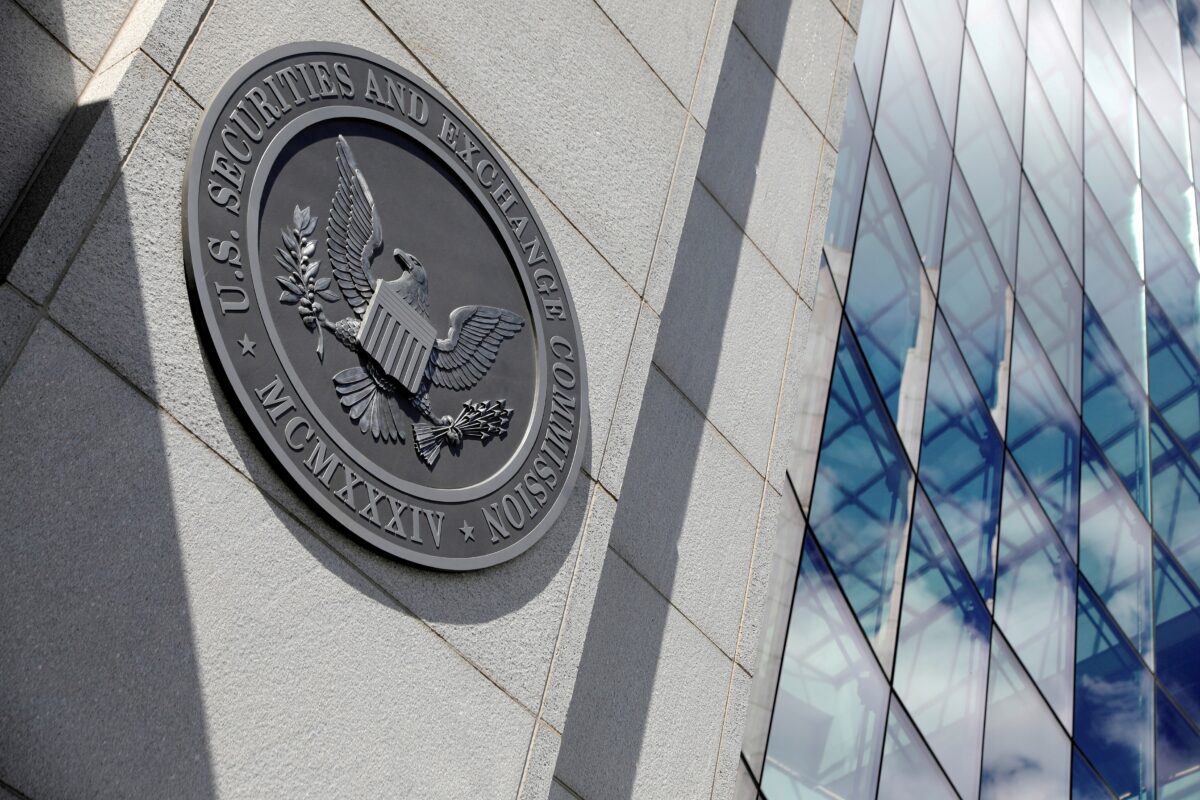
Trade Group Calls on Congress to Rein in ESG ‘Onslaught’
By Tom Ozimek
A trade group representing some 14,000 small and large manufacturers has issued a scorching criticism of recent regulatory moves tightening environmental, social, and governance (ESG) rules while calling on Congress to fight the Securities and Exchange Commission’s (SEC) “regulatory onslaught.”
As the House Financial Services Committee prepares to conduct a series of hearings on ESG and issues relating to the proxy process, the National Association of Manufacturers (NAM) has penned a letter to the committee’s leaders urging them to take action to protect businesses from ESG activists.
The SEC is criticized for giving special privileges to ESG activists, reducing oversight of proxy firms, and proposing rigid ESG mandates that burden manufacturers without benefiting investors.
“Rather than tamp down on the deluge of politically motivated proposals, the SEC has granted special access to the proxy ballot for ESG activists,” the group wrote in the letter (pdf), which was addressed to Reps. Patrick McHenry (R-N.C.) and Maxine Waters (D-Calif.), the chairman and ranking member of the House Financial Services Committee, respectively.
The manufacturing group wants Congress to intervene and limit proxy advisory firms’ influence, reinforce fiduciary duty, and prevent activist agendas.
“Congress must step in to depoliticize the business decisions that impact the lives and life savings of millions of Americans,” the group wrote.
The SEC has not returned a request for comment.
Proxy Ballot Controversy
Proxy ballots let shareholders vote on matters of corporate governance or decision-making when they’re unable to attend a shareholder meeting in person. Typically, someone from the company’s management or a proxy advisory firm is designated as a proxy to cast a vote.
Investors often take proxy firms’ advice on issues like director elections, merger transactions, and ESG matters, giving such entities significant power over whether a ballot item succeeds or fails.
As the ESG movement has gained steam, many corporations have argued that proxy advisory companies have amassed too much power over corporate elections and that they should be regulated more tightly.
Under former President Donald Trump, restrictions were imposed on proxy firms that required them to inform companies about how they’re advising shareholders to vote in corporate elections.
Also, in a bid to bolster transparency, the Trump-era rules let investors see what opinion companies have about the guidance provided by proxy firms.
But in July 2022, the SEC voted 3-2 along party lines to rescind the Trump-era rules, siding with critics that claimed the restrictions impeded the independence of proxy firms.
Specifically, the rules adopted by the SEC rescinded two exemptions, including a requirement that proxy advisers provide a first look to corporations of the advice to be placed on the agenda. It also removed a requirement that allowed clients of proxy firms to be notified of any written responses to their guidance from companies.

‘Outsized Influence’
Shortly after the SEC decided to gut some of the Trump-era rules, the National Association of Manufacturers said it would sue.
“Manufacturers depend on federal agencies to provide reliable rules of the road, and the SEC’s arbitrary actions to rescind this commonsense regulation clearly violate its obligations under the Administrative Procedure Act,” NAM chief legal officer Linda Kelly said in a statement at the time.
Ms. Kelly added that NAM “is filing suit to preserve the 2020 rule in full and protect manufacturers from proxy advisory firms’ outsized influence.”
However, in December 2022, a Texas court threw out the NAM lawsuit, arguing that the SEC’s rule changes were within “the bounds of reasoned decision making.”
The manufacturing lobby said in its letter to congressional lawmakers that the court decision to allow the SEC’s rescission of the Trump-era proxy rules has led to an influx of activist investors seeking to upset a “delicate and critical balance” between shareholders and corporations.
The manufacturing lobby asked Congress to take action to rein in proxy advisory firms’ influence and limit ESG agendas.
“Instead of providing appropriate oversight of proxy firms, the SEC has rolled back commonsense guardrails that were designed to inform and protect investors,” the group wrote in the letter.
“And instead of allowing the time-tested materiality standard to govern companies’ disclosure obligations, the SEC has proposed prescriptive, inflexible ESG mandates that will dramatically increase costs for manufacturers while providing minimal benefit for investors,” it added.
It comes as Republican lawmakers have taken ESG into their crosshairs and look to advance legislative measures that curb activist investors.
READ MORE FROM FOR A FREE AMERICA
Appetite for ESG also appears to be waning among shareholders, with recent data showing a drop in support for ESG proposals.
Data from the Sustainable Investments Institute shows that proposals to compel corporations to act against climate change won approval from an average of 23 percent of shareholders, versus 36.6 percent in 2022 and about 50 percent in 2021.
Support for proposals on social justice causes is also down by about 10 percentage points from last year.

Comments (0)